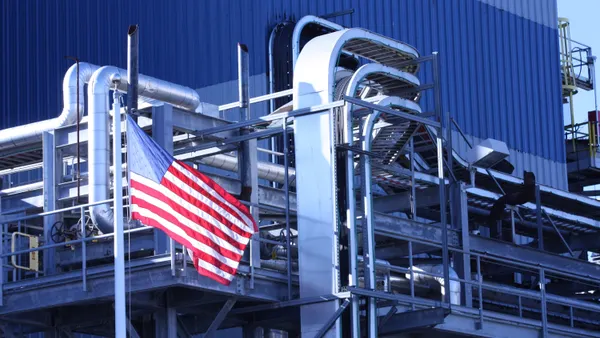Let’s be honest — no one in manufacturing is asking for more complexity. But complexity is exactly what the industry is confronting.
Global instability continues to disrupt operations. Inflation, volatile supply chains and material shortages are tightening margins. At the same time, manufacturers are under mounting pressure to meet sustainability mandates and deliver seamless experiences to increasingly demanding customers — all while contending with a growing digital skills gap.
The urgency is real, and so are the ambitions. Leaders across the sector are actively working to:
- Run smarter, more autonomous factories
- Build agile supply chains that adjust in real time
- Deliver sustainable operations without compromising performance
- Enhance customer experiences across every channel
These aren’t future goals. They’re current mandates. But progress often stalls — not because manufacturers lack vision, but because they lack confidence in the data that supports it.
Trusted data: The missing link in modernization
A recent IDC InfoBrief, sponsored by Stibo Systems, offers a data-rich view of where manufacturers stand. It confirms what many are already experiencing: strategy is not the issue. The gap lies in the ability to act — and act quickly — on accurate, consistent and connected data.
IDC found that:
- 57% of manufacturers view real-time factory visibility as a top initiative
- Nearly 60% say poor supply chain visibility puts their operations at risk
- And 46% identify unreliable data as the biggest barrier to meeting sustainability goals
Across industries and regions, the story is similar. Manufacturers are investing in automation, analytics and AI — but the data foundation supporting those technologies often remains fragmented, siloed or incomplete.
This slows execution, undermines trust and increases exposure to risk. When different teams interpret the same data differently — or spend time validating the basics — speed, alignment and impact all suffer.
The hidden costs of disconnected data
For many manufacturers, untrusted data isn’t just a nuisance — it’s a recurring drain on time, resources and outcomes. In a separate Stibo Systems study, only one in four operations leaders said they fully trust their data. Meanwhile, 86% spend more than 30% of their time manually correcting, validating or interpreting that data.
This constant firefighting limits innovation. It delays product launches. It forces teams to make critical decisions with partial visibility. And as AI and automation scale, flawed input doesn’t just create bottlenecks — it propagates risk and error throughout the enterprise.
A better approach: Connect, standardize, trust
Leading manufacturers are solving this not by ripping out systems, but by strengthening the foundation that unites them.
They’re investing in multidomain master data management (MDM) — connecting product, supplier, customer and location data into a single, governed, transparent layer. This enables:
- Real-time insight across the factory floor
- Dynamic supply chain response and risk mitigation
- Personalized customer engagement at scale
- ESG and compliance reporting with full traceability
By governing data centrally — but flexibly — these organizations unlock automation, improve speed-to-decision and give every function access to a consistent version of the truth.
One global manufacturer, highlighted in the IDC InfoBrief, achieved a 50% reduction in ERP migration time, a 30% improvement in product onboarding speed, and 25% fewer data errors by shifting to a centralized data foundation. The same investment also delivered 100% traceability and measurable gains in sustainability reporting accuracy.
A simple question, a strategic imperative
Every manufacturer today is facing some form of digital transformation. Whether modernizing ERP, enabling smart factories or scaling sustainable practices, the outcome will only be as strong as the data it's built on.
That makes this the defining question:
Can you trust your data — across every system, plant and region — to support your next move?
If the answer isn’t a confident “yes,” now is the time to act. Because manufacturing excellence doesn’t start with AI. Or automation. Or even strategy.
It starts with trust.











